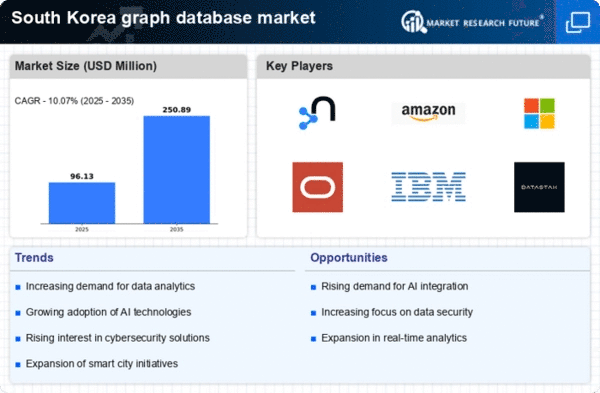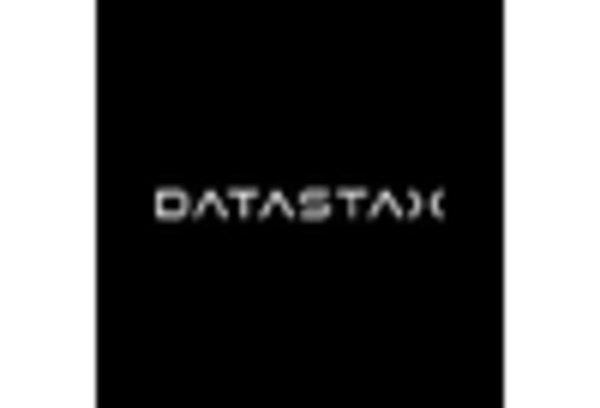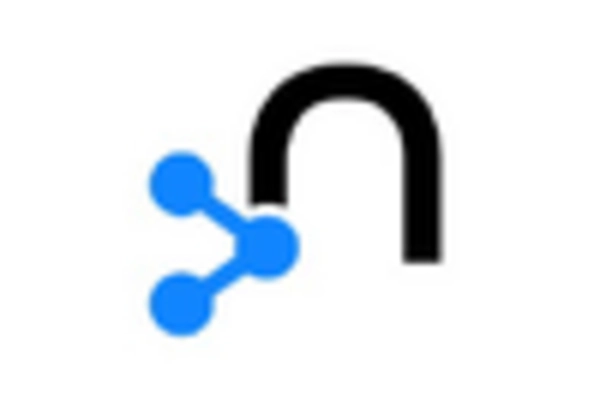Need for Enhanced Cybersecurity Measures
As cyber threats continue to evolve, the need for enhanced cybersecurity measures becomes increasingly critical in South Korea. The graph database market is poised to benefit from this trend, as these databases can effectively model and analyze complex relationships within data, aiding in the identification of potential vulnerabilities and threats. Organizations are leveraging graph databases to enhance their security protocols, enabling them to detect anomalies and respond to incidents more swiftly. The cybersecurity market in South Korea is projected to grow at a CAGR of around 15% over the next few years, indicating a strong demand for innovative solutions, including graph databases, to bolster security frameworks.
Rising Demand for Real-Time Data Processing
The graph database market in South Korea is experiencing a significant increase in demand for real-time data processing capabilities. As businesses increasingly rely on immediate insights for decision-making, the ability to manage and analyze complex relationships in data becomes paramount. This trend is particularly evident in sectors such as finance and telecommunications, where timely data can significantly impact operational efficiency. According to recent estimates, the market for real-time analytics is projected to grow at a CAGR of approximately 25% over the next five years. Consequently, organizations are turning to graph databases to facilitate faster data retrieval and enhance their analytical capabilities, thereby driving growth in the graph database market.
Expansion of E-Commerce and Digital Services
The rapid expansion of e-commerce and digital services in South Korea significantly influences the graph database market. With the increasing volume of transactions and customer interactions, businesses require robust systems to manage complex data relationships effectively. Graph databases offer the flexibility and scalability needed to handle vast amounts of interconnected data, which is essential for personalized customer experiences and targeted marketing strategies. Recent reports indicate that the e-commerce sector in South Korea is expected to reach a valuation of over $100 billion by 2026, further propelling the demand for advanced data management solutions. This growth underscores the critical role of graph databases in supporting the evolving landscape of digital commerce.
Growth of Artificial Intelligence Applications
The integration of artificial intelligence (AI) applications within various sectors in South Korea is driving advancements in the graph database market. AI technologies often require sophisticated data structures to process and analyze vast amounts of interconnected information. Graph databases provide the necessary framework to support AI algorithms, enabling more efficient data handling and improved machine learning outcomes. As industries increasingly adopt AI for automation and predictive analytics, the demand for graph databases is likely to rise. The AI market in South Korea is anticipated to reach $10 billion by 2027, suggesting a substantial opportunity for graph database solutions to play a pivotal role in this technological evolution.
Increased Focus on Data-Driven Decision Making
In South Korea, there is a growing emphasis on data-driven decision making across various industries, which significantly impacts the graph database market. Organizations are recognizing the value of leveraging data analytics to inform strategic choices and improve operational efficiency. Graph databases facilitate the exploration of complex data relationships, allowing businesses to uncover insights that traditional databases may overlook. This shift towards data-centric strategies is reflected in the increasing investments in data management technologies, with projections indicating a growth rate of approximately 20% in the data analytics sector over the next few years. As companies prioritize data-driven approaches, the graph database market is likely to see substantial growth.
















